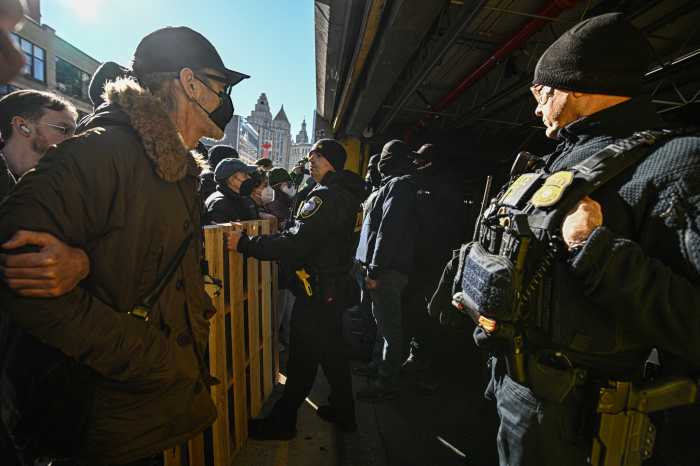The five boroughs of New York City are now in the awkward position of falling behind upstate Chemung and Greene Counties when it comes to transgender rights. The good news is that the New York State Health Department’s new regulations allow residents to change the gender marker on their birth certificates without having to give proof of gender reassignment surgery or hormonal treatments. The bad news is that that Title 24 of the Rules of New York City has not kept pace with these reforms.
Recently, California, Iowa, Oregon, Vermont, Washington State, and Washington, DC led the way in dropping sex reassignment surgery as a criterion for changing the gender designation on birth certificates. The federal government no longer requires it for updating Social Security or passport information. And the movement went international last month, when the World Health Organization (WHO) issued a report condemning these requirements as coercive and discriminatory.
Although some transgender individuals do elect to have these surgical procedures, others would prefer not to. Under New York City’s current law, transgender individuals who hold out from having the procedure are forced to use birth certificates that do not reflect their current gender identification.
According to the comprehensive National Transgender Discrimination Survey (NTDS), “only one-fifth (21 percent) have been able to update all of their IDs and records with their new gender.”
Since birth certificates are used for employment, one particularly disturbing statistic for New York City residents is that 90 percent of transgender individuals reported job discrimination and harassment, and 47 percent said that it involved being fired or denied a job or promotion. Not surprisingly, the transgender population’s rate of unemployment, poverty, and homelessness is much higher than the national average — and this has been particularly true for individuals of color.
Extrapolating from the data, the Williams Institute’s Jody Herman has estimated that “if rates of employment and housing discrimination found in the New York sample of the NTDS hold true for the transgender population of New York as a whole, then 11,600 have lost a job, 21,500 were not hired for a job, 11,600 were denied a promotion, 11,000 have been denied housing, and 4,600 have been evicted due to anti-transgender bias.” She concludes that “employment and housing discrimination against transgender New Yorkers may cost from $1.5 to $7 million in Medicaid and housing program expenditures, not including the additional millions in income tax revenues that could be generated if employment discrimination was reduced or eliminated.”
By bringing its birth certificate law into line with state, national, and international norms, New York City will be giving itself a gift this 45th anniversary of Stonewall.
Letitia James was elected New York City public advocate in November 2013, after representing Fort Greene, Clinton Hill, Prospects Heights, Crown Heights, and Bedford-Stuyvesant on the City Council for a decade.












